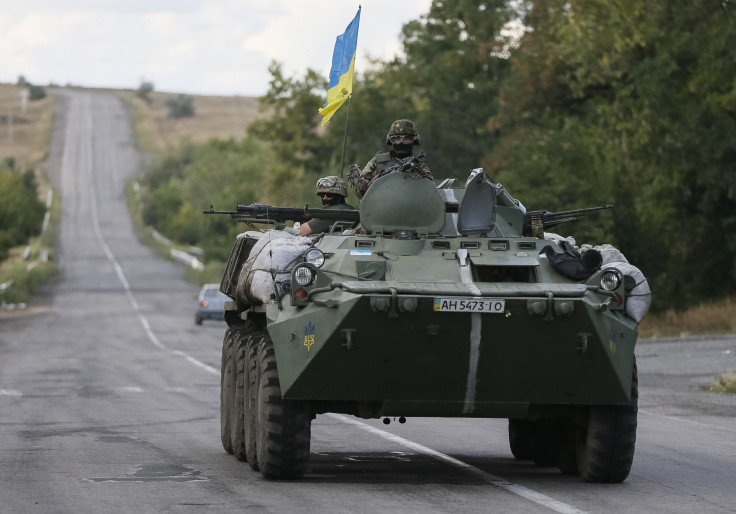NATO Meets On Ukraine Conflict, Postpones Any Response To Russia To Next Week

After an "extraordinary" meeting of the North Atlantic Treaty Organization on Friday, it appears the U.S.-led alliance will wait until its meeting in Cardiff, Wales, next Thursday before taking any direct action regarding Russian troops entering Ukraine.
NATO Secretary-General Anders Fogh Rasmussen confirmed that Russian troops had entered eastern and southeastern Ukraine, calling it a “dangerous pattern” that had taken place over many months in order to “destabilize Ukraine,” and urged Russia to cease its illegal actions, but stopped short of saying what NATO would do should Russia continue its aggression.
"We urge Russia to cease its illegal military actions,” said Rasmussen at the meeting in Brussels. “Stop its support to armed separatists, and take immediate and verifiable steps towards de-escalation of this grave crisis.”
The current confrontation between Ukraine and Russia unfolded after a bloody revolution in Kiev resulted in pro-Russian president Viktor Yanukovych fleeing the country on Feb. 21. Just five days later, amid the bloodshed in the capital, Russian troops began to take over Crimea, a Russian-majority autonomous region of Ukraine. By mid-March a referendum was held, with an overwhelming majority in favor of Crimea becoming part of Russia. The vote was condemned as illegal by the U.N.
While Rasmussen delivered the strongest message yet from NATO leadership over the crisis, the alliance has yet to lay out what sort of action that it might be willing to take, if any. Ukraine is not a member of NATO, therefore the alliance is not compelled to act under Article Five of its charter, which states that it will defend any member that comes under attack, but it may, after consideration, act under Article Four, which enables NATO action if it feels that the independence and security of member states are threatened by an outside force.
“There’s a major lack of leadership at NATO,” said Stephen Blank, a senior fellow at the American Foreign Policy Council. “The Germans don’t want to do anything that might damage Russia because it would hurt their economy, and the Americans don’t want to lead the conversation, so we’re seeing nothing happen.”
Thursday’s meeting in Cardiff will discuss a number of international issues, including the threat of ISIS in Syria and Iraq.
“I don’t know what will happen at the meeting because NATO is so disjointed right now,” said Blank. “But there’s really only one solution at this stage. This invasion didn’t just start yesterday, it started on Feb. 25, and the thought that this won’t end by military means is utterly factious and misconceived. Unfortunately, when there’s a war it usually ends by military means.”
According to Blank, “If they send in NATO troops Russia will forced to stop, otherwise they will attack NATO.”
Ukrainian Prime Minister Arseniy Yatsenyuk said Friday that the country will submit an application to join NATO.
© Copyright IBTimes 2025. All rights reserved.






















